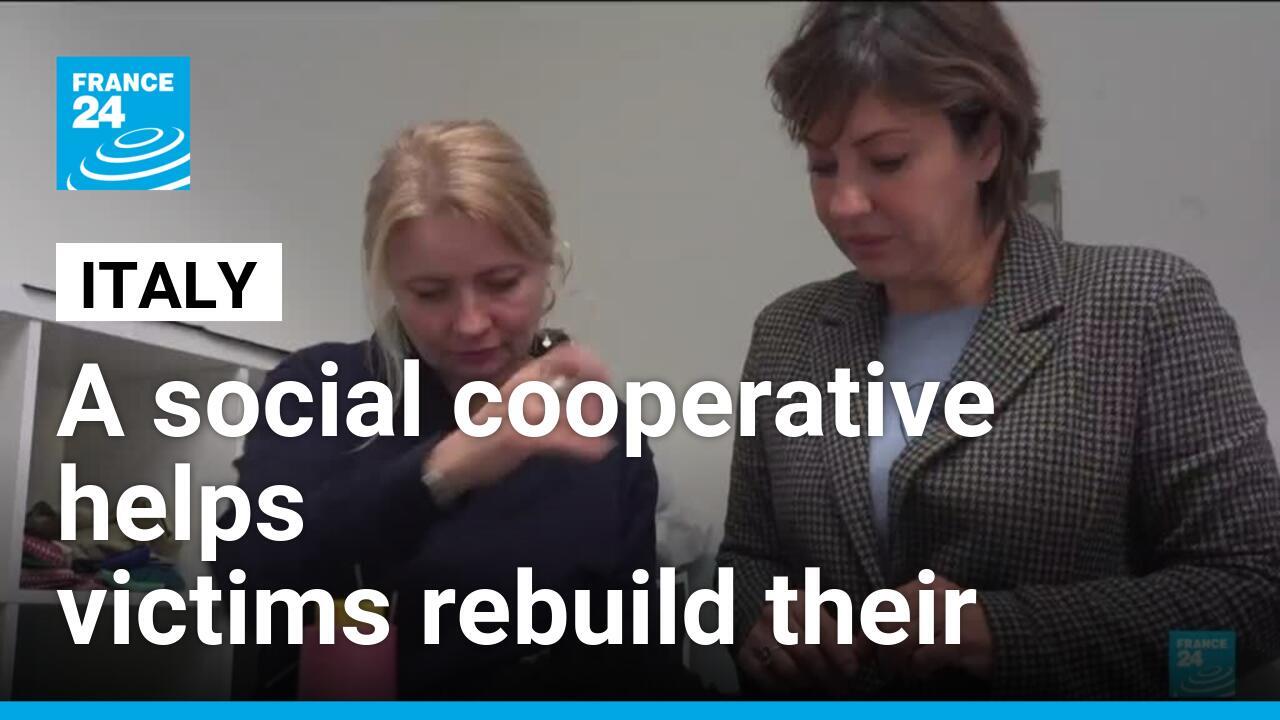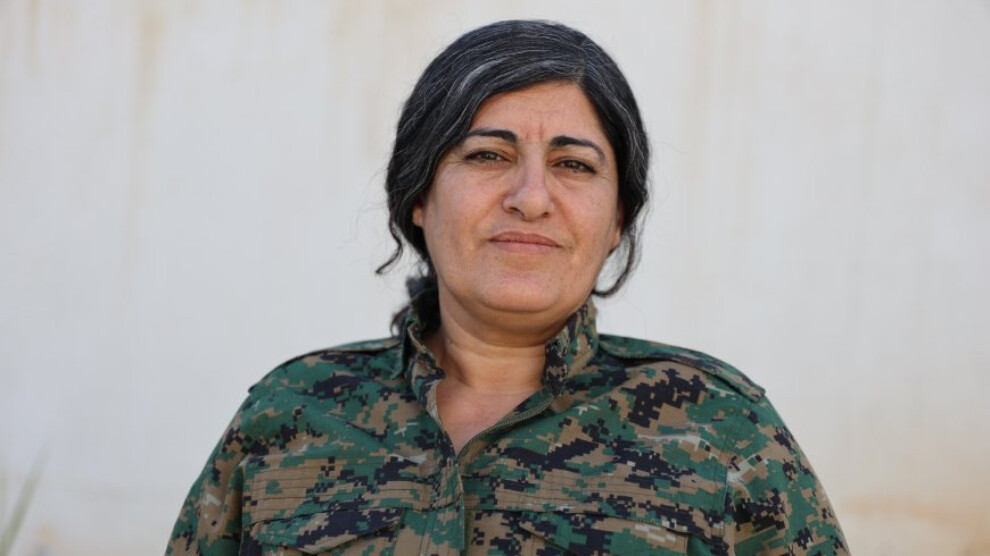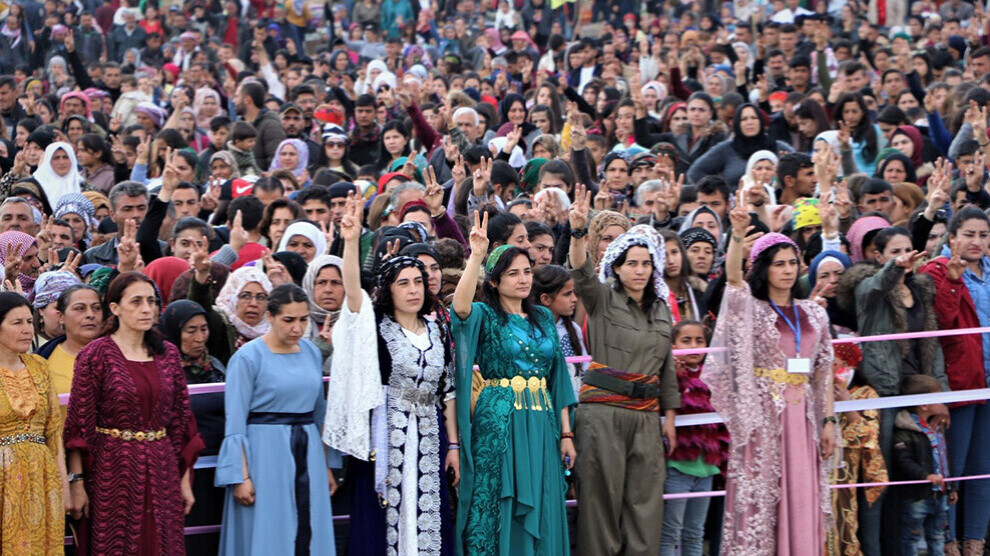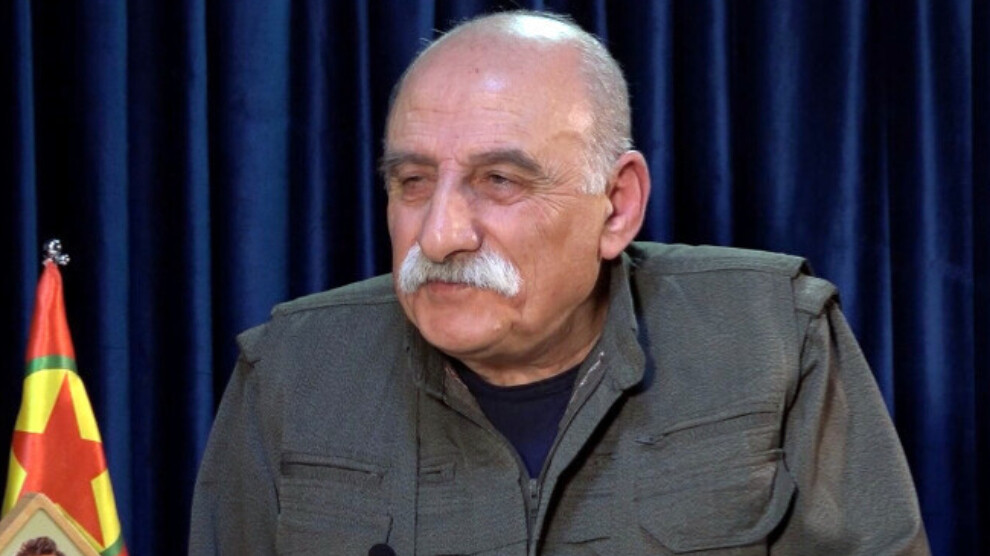Europe
A UN report released on the International Day for the Elimination of Violence Against Women said that "almost 60 percent of all women who were intentionally killed in 2023" died at the hands of partners or family members. The report added that “the home is the most dangerous place for women and girls”.
Issued on: 25/11/2024 -
By: NEWS WIRES

The deadliest place for women is at home and 140 women and girls on average were killed by an intimate partner or family member per day last year, two U.N. agencies reported Monday.
Globally, an intimate partner or family member was responsible for the deaths of approximately 51,100 women and girls during 2023, an increase from an estimated 48,800 victims in 2022, UN Women and the U.N. Office of Drugs and Crime said.
The report released on the International Day for the Elimination of Violence Against Women said the increase was largely the result of more data being available from countries and not more killings.

But the two agencies stressed that “Women and girls everywhere continue to be affected by this extreme form of gender-based violence and no region is excluded.” And they said, “the home is the most dangerous place for women and girls.”
The highest number of intimate partner and family killings was in Africa – with an estimated 21,700 victims in 2023, the report said. Africa also had the highest number of victims relative to the size of its population — 2.9 victims per 100,000 people.
There were also high rates last year in the Americas with 1.6 female victims per 100,000 and in Oceania with 1.5 per 100,000, it said. Rates were significantly lower in Asia at 0.8 victims per 100,000 and Europe at 0.6 per 100,000.
According to the report, the intentional killing of women in the private sphere in Europe and the Americas is largely by intimate partners.
By contrast, the vast majority of male homicides take place outside homes and families, it said.
“Even though men and boys account for the vast majority of homicide victims, women and girls continue to be disproportionately affected by lethal violence in the private sphere,” the report said.
“An estimated 80% of all homicide victims in 2023 were men while 20% were women, but lethal violence within the family takes a much higher toll on women than men, with almost 60% of all women who were intentionally killed in 2023 being victims of intimate partner/family member homicide,” it said.
The report said that despite efforts to prevent the killing of women and girls by countries, their killings “remain at alarmingly high levels.”
“They are often the culmination of repeated episodes of gender-based violence, which means they are preventable through timely and effective interventions,” the two agencies said.
(AP)
More than 400 French organisations have called for demonstrations across France on Saturday to protest violence against women. The mass mobilisation comes amid the widespread shock caused by the Pelicot mass rape trial, in which some 50 men are accused of raping Gisèle Pelicot at the behest of her husband while she was unconscious.
Issued on: 23/11/2024 -

Thousands demonstrated in major French cities Saturday against violence targeting women, as campaigners push for the country to learn from a mass rape trial that has shocked the public.
Prosecutors will in the coming week ask the court in the southern city Avignon to sentence 51 men, one who drugged his wife over the course of a decade and dozens of others who accepted his invitations to abuse her at their home.
Out on the street, "the more of us there are, the more visible we are, this is everyone's business, not just women," said Peggy Plou, a local elected official from the Indre-et-Loire region in western France who had made the trip to Paris.
Thousands of people marched in the capital alone, mostly women but including some children and men.
And there were hundreds-strong demonstrations in other major cities including Marseille in the south, Lille in the northeast and Rennes in the northwest.

She has been celebrated for accepting public hearings in her case rather than a trial behind closed doors, despite their painful content.
"A law about consent must be put in place very quickly. Just because someone doesn't say something, doesn't mean that they agree" to sexual contact, said Marie-Claire Abiker, 78, a retired nurse also marching in Paris.
France's legal definition of rape calls it "any act of sexual penetration... by violence, constraint, threats or surprise" but includes no language about consent -- a key demand of women's rights groups especially since the MeToo movement launched in the late 2010s.
"In 2018, there were basically only women (demonstrating). Today there are, let's say, 30 percent men. That's really great news," said Amy Bah, a member of the NousToutes (all of us women) feminist group protesting in Lille.
"I feel like this is my business too, we each have our role to play, especially men," said Arnaud Garcette, 38, at the Marseille demonstration in the city's touristy historic port with his two children.
"We're at the source of the problem, and at the source of the solutions too," he added.
The demonstrations called out by more than 400 campaign groups come two days before Monday, the International Day for the Elimination of Violence Against Women.
Equality Minister Salima Saa has promised "concrete and effective" measures to coincide with the global day.
A woman is killed by a partner or former partner nearly every two days in Germany. Activists have called on the government to do more to end violence against women.
All forms of violence against women are on the rise in Germany.
The Federal Criminal Police Office's (BKA) first-ever report on the situation, "Gender-specific crimes against women in 2023," found that, over the course of the year, 360 women were killed by men, often in incidents of partner violence or in the course of separation.
At the presentation of the report in October, Interior Minister Nancy Faeser, a Social Democrat, said: "We see a femicide in Germany almost every day. ... They become victims because they are women. That is intolerable."
In all 155 women were killed by their partners or ex-partners iin 2023, according to the BKA.
Lawyer Corinna Wehran-Itschert remembers the case of a woman with several small children. Despite restraining orders, her husband stalked her for more than two years following their separation. "The man ambushed her in her entryway and killed her. That was awful," she said.
Diana B. (name changed) is one of Wehran-Itschert's clients. She told DW that her husband has repeatedly threatened to kill her, and she wants to do everything to stop him from finding her.
He beat her for years, choking and in the end severely injuring her. Because there were no previous reports against her husband, the courts considered him a first-time offender and imposed only a suspended sentence.
Diana B. has built a new life for herself and her children in a new location. She survived — but hundreds of other women did not.

Politicians aren't doing enough to address femicide
In Germany, femicide is not categorized as a separate criminal offense — perpetrators are charged with murder or manslaughter.
"Two femicides in Berlin per week — every second day a woman in Germany is murdered by her partner or ex-partner. That concerns and angers me greatly," said Family Minister Lisa Paus in September, after two women were allegedly killed by former partners in the German capital. She said "we not only need security measures against terrorists who attack people with knives, but also for the prevention and protection of women from violence."

In an urgent letter, organizations and more than 30,000 individuals reminded the federal government that its 2021 coalition agreement "pledged to make a law to provide better protection to those affected by violence." Paus has drafted an anti-domestic violence law, but it's stuck in negotiations between various ministries.
"Without the anti-violence law, people will continue to die," warned the signatories of the letter. "People's lives will continue to be destroyed because they will be denied the protection they urgently need!"
Not enough space, not enough money for women's shelters
According to the Council of Europe's Istanbul Convention on preventing and combating violence against women and domestic violence, Germany lacks about 14,000 spaces for women and children in refuge shelters. One recent study said far too little is being invested into prevention and protection services: €300 million ($325 million) instead of the recommended up to €1.6 billion per year.
In Germany, funding for women's refuge facilities is decided at the state and local council levels. That's a problem, according to Alexandra Neisius, who runs the women's shelter in Koblenz where Diana B. and her children found help.
The city of 115,000 people should have 11-12 rooms where women can receive protection. There are currently seven, meaning many women must be turned away. When Neisius lists an available space, she said it's filled within a couple of hours.

The women's shelter in Koblenz has successfully applied for funding to expand and renovate its facilities, planning to build two new family rooms, plus one for emergency cases. But money for extra staff has not been approved, despite being urgently needed for legal and trauma-sensitive advice.
The emergency facility is where police or youth welfare officials can accommodate endangered women at short notice. According to Gabriele Slabenig, the Koblenz police official responsible for domestic violence cases, some women call the police themselves, while others turn up at the shelter with their children and belongings packed. She works on 150-200 cases of violence against women per year and monitors high-risk situations.
"More and more women came saying: I need protection, I cannot go home anymore, I am being beaten, I am threatened with death," she said.
It's rare for places in women's shelters to be available nearby or at short notice. Police in Koblenz sometimes drive women in emergency situations up to 300 kilometers (about 190 miles) away to a safe place. Crime experts examine victims' cell phones to delete tracking and spying software.
For women, safety is often a cost issue
Women's shelter director Neisius criticized the fact that women who do not qualify for social benefits must pay for their stay themselves. Together with a supporters' association, she tries to help the victims using donated funds. According to nationwide statistics from the shelters, it's mostly the women who must pay for their stays themselves who return to violent situations.
A draft of the family violence law, which DW has obtained, mentions an enforceable "right to protection and legal advice" free of charge for all victims. That would oblige Germany to provide enough spaces at women's shelters.
Violence against women affects all parts of society. However, a higher proportion of migrant women are living in the shelters, because they tend to need more support. "Often they have no family here to help them. They cannot speak the language very well and don't know what the laws are," said Neisius.
Slabenig of the Koblenz police said many women are at an elevated risk of being killed after a separation, a death threat or a physical attack such as strangling. She said offenders often share certain characteristics, as "men who are extremely aggressive, impulsive, controlling, dominant, jealous."
"Children who witness violence toward their mothers, that is like violence against the children themselves," said lawyer Wehran-Itschert. There is the risk of the cycle continuing through the generations: "Either the son begins to hit or behaves as macho as the husband — or the daughter becomes a victim."
The children at the women's shelter in Koblenz are taught about nonviolence, and a social worker visits to work with the boys. Neisius urges women who want to stay with a violent man for the sake of their children: "Please leave, for the sake of the children."
Diana B. never wants to see her husband again, and has realized it was wrong to stay with him. "If I'm not doing well, then my children aren't doing well either." She has emphasized to her daughter that if a man disrespects or hits her, she should leave him straightaway.
Hoping that a violent man will change his ways isn't the right approach, said Neisius: "It doesn't stop by itself."
This article was originally written in German. It was first published on November 8 and later updated and republished to include latest figures.







